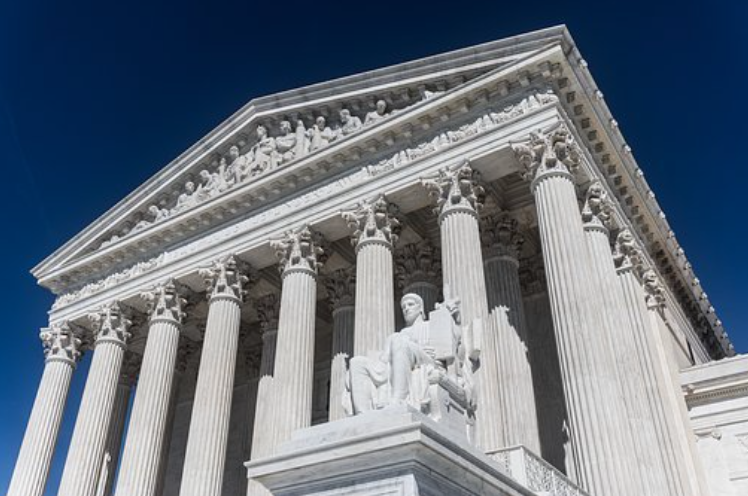By declining to review a lower court’s ruling, the justices will effectively allow the Americans with Disabilities Act to be applied to people who are transgender.
The Supreme Court has declined to review a federal appeals courts’ ruling that found that transgender people, including inmates, are entitled to legal protections under the Americans with Disabilities Act.
According to The Associated Press, the justices’ decision has already been hailed as a landmark victory for people with gender dysphoria.
“By declining to hear this case, the Supreme Court implicitly acknowledges that those who have seriously examined the issue have concluded: the [Americans with Disabilities Act] protects people who experience gender dysphoria, including transgender and nonbinary people, from being discriminated against on that basis,” said Olivia Hunt, policy director at the National Center for Transgender Equality.
However, the Associated Press notes that conservative Justice Samuel Alito issued a “scathing” dissent, finding “several aspects” of the Fourth Circuit Court of Appeals’ ruling “troubling.”
The appellate panel’s ruling, Alito wrote, “will raise a host of important and sensitive questions” about transgender women’s participation in girls’ sports, as well as the use of traditional pronouns and sex reassignment therapy.
“In short, the Fourth Circuit’s ruling leaves a great many people and institutions under the looming thread of liability, forcing them to change their behavior—behavior that may be deeply rooted in moral or religious principles—or face an unending stream of lawsuits,” Alito wrote in his nine-page dissent.

Alito was joined in his dissent by conservative Justice Clarence Thomas.
CNN reports that the lawsuit was filed by Kesha Williams, a transgender Virginia inmate.
Williams, who spent six months behind bars in a Fairfax County holding facility, sued several corrections officials, saying that she was mistreated in violation of the Americans with Disabilities.
In her lawsuit, Williams said that she had, for instance, been assigned to the women’s housing unit—but was later moved to the men’s unit, where she experienced delays in her gender dysphoria-related medical treatment.
Williams also claimed that she was sexually and physically harassed by other biologically male inmates.
“In light of the ‘basic promise of equality […] that animates the [Americans with Disabilities Act],’ we see no legitimate reason why Congress would intend to exclude from the ADA’s protections transgender people who suffer from gender dysphoria,” the Fourth U.S. Circuit Court of Appeals said in its ruling.
While Virginia corrections officials appealed the ruling, attorneys for Williams urged the Supreme Court to decline to review the case, saying that Williams’ claim was still in its early stages when another, lower court had ruled against her.
“There is no pressing need to review the question presented, particularly on this undeveloped record,” Williams’ counsel wrote in a brief submitted to the Supreme Court. “As [the prison officials acknowledge], there is no circuit split on the question presented.”
“To the contrary,” they added, “the Fourth Circuit is the first appellate court ever to opine on the proper interpretation of [the at-issue section of the ADA].”
Sources
Supreme Court allows transgender woman’s lawsuit against Virginia prison to continue
Supreme Court lets stand ruling that protects people with gender dysphoria under disability law


Join the conversation!